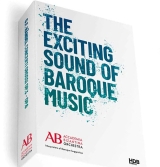Endes des 16. Jahrhunderts wurde von Dichtern im Kreise um die in Rom lebende Königin von Schweden eine Akademie mit dem Namen ‘Arcadia’ gegründet. ‘Arcadia’ nahm 1706 auch Komponisten auf, Corelli, Pasquini und Scarlatti, und sie waren es, die den barocken Schwulst abwarfen und sich in einer einfacheren Musik um mehr Poesie und Rhetorik bemühten.
Der Accademia Bizantina und ihrem Leiter Ottavio Dantone gelingt es, dies hörbar zu machen in dieser Gesamtaufnahme der Concerti Grossi op. 6, für die die neue kritische Edition von Bernardo Ticci benutzt wurde.
Mit ihren emotional tiefschürfenden wie auch dramatisch hochgezüchteten Interpretationen und der großartigen Spontaneität ihres Spiels, begeistern sie total. Weil Dantone es versteht, eine wunderbare Balance zwischen rhythmischer Prägnanz und ausgesungenen Melodien zu halten, hinterlassen die Aufnahmen einen mehr als nur positiven Eindruck.
Auch die Aufnahme ist vom Allerbesten. Im optimal ausbalancierten Klangbild bekommen die Instrumente eine phänomenale Präsenz.
At the end of the 16th century, an academy called ‘Arcadia’ was founded by poets in the circle around the Queen of Sweden, who lived in Rome. ‘Arcadia’ also accepted composers in 1706, Corelli, Pasquini and Scarlatti, and it was they who threw off the baroque swagger and sought more poetry and rhetoric in a simpler music.
The Accademia Bizantina and its director Ottavio Dantone strive to make this audible in this complete recording of the Concerti Grossi, Op. 6, based on Bernardo Ticci’s new critical edition.
With their emotionally profound as well as dramatically highbrow interpretations and the great spontaneity of their playing, they totally inspire. Because Dantone knows how to maintain a wonderful balance between rhythmic concision and cantabile melodies, the performance leaves a more than positive impression.
The recording is also of the very best. In the optimally balanced sound image, the instruments get a phenomenal presence.






















